In today’s global marketplace, the movement of goods across borders has become a critical component of international trade, particularly for businesses looking to import products from China to South Africa. Understanding the role of shipping agents is essential for navigating this complex landscape. These professionals act as intermediaries, facilitating logistics, customs clearance, and transportation, ensuring that goods are delivered efficiently and compliantly. As China continues to dominate global manufacturing, the benefits of importing from this powerhouse are numerous, ranging from cost savings to access to a vast array of products. By choosing the right shipping methods and agents, businesses can optimize their supply chains and enhance their competitiveness in the South African market.
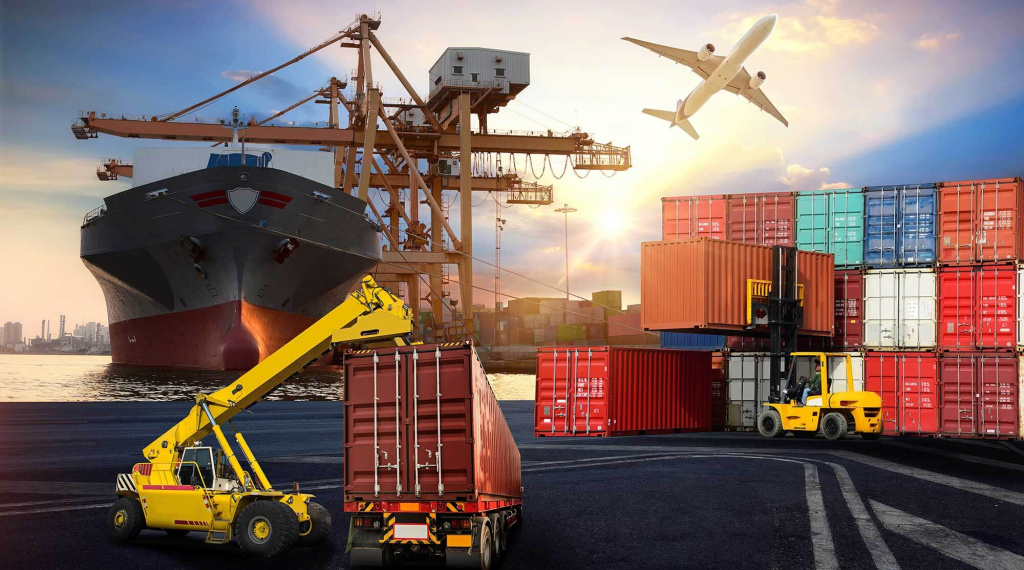
Understanding Shipping Agents
International trade relies heavily on the intricate web of logistics and supply chain management. At the heart of this system are shipping agents, who play a vital role in facilitating the movement of goods across borders.
What is a Shipping Agent?
A shipping agent is a representative of a shipping line or freight carrier who acts on behalf of the shipowner to manage logistics and transportation needs. These agents liaise with port authorities, customs officials, and other stakeholders to ensure that cargo is loaded, unloaded, and transported efficiently. Shipping agents handle various tasks, including:
- Booking cargo space: Agents coordinate the reservation of shipping space, ensuring that shipments are secured on vessels that best meet the client’s timeline and budget.
- Documentation: They prepare essential documents like bills of lading, customs declarations, and commercial invoices to ensure compliance with international shipping regulations.
- Customs clearance: Shipping agents assist in navigating the complex customs procedures required for international trade, thereby preventing delays in shipments.
- Cargo tracking: They provide updates and information regarding the status and location of shipments, allowing businesses to monitor their goods in real time.
- Coordination of logistics: Shipping agents organize the multi-modal transportation of goods, which may include land, sea, and air transport.
By understanding the role and functionality of shipping agents, importers and exporters can better navigate the complexities of global trade.
Role of Shipping Agents in International Trade
Shipping agents are essential players in international commerce. They facilitate the smooth transit of goods by acting as intermediaries between various parties involved in the shipping process. Key functions include:
- Reducing risk and ensuring compliance: Shipping agents help businesses adhere to international trade laws and regulations, minimizing legal risks associated with shipping.
- Problem-solving: They possess extensive knowledge of local and international laws, which enables them to resolve issues that may arise during the shipping process, such as delays, damages, or lost shipments.
- Network access: Experienced shipping agents have established relationships with port officials, customs agents, and carriers, which can expedite processes and enhance service quality.
- Cost efficiency: By leveraging their expertise and networks, shipping agents can often negotiate better shipping rates and terms, leading to cost savings for businesses.
For companies involved in international trade, partnering with a reliable shipping agent can streamline operations and enhance the overall efficiency of their supply chains.
Why Choose China as a Sourcing Destination?
China has firmly established itself as a global manufacturing powerhouse, attracting businesses from various sectors seeking to import goods. The country’s vast resources, skilled workforce, and advanced production capabilities make it a preferred sourcing destination.

Overview of Chinese Manufacturing Capabilities
China’s manufacturing sector is characterized by:
- Diverse Industries: From electronics to textiles, machinery to consumer goods, China’s manufacturing capabilities span various industries. This diversity allows businesses to find suppliers that meet their specific needs.
- Advanced Technology: Many factories in China utilize cutting-edge technology, including automation and robotics, which enhances production efficiency and product quality.
- Economies of Scale: China’s large-scale manufacturing operations enable companies to benefit from lower production costs, making it economically viable to produce goods in the country.
- Skilled Labor: The workforce in China is highly skilled, particularly in fields such as engineering, manufacturing, and design, which contributes to the production of high-quality goods.
These factors combine to create an attractive environment for businesses looking to source products from China.
Benefits of Importing from China to South Africa
Importing goods from China to South Africa offers numerous advantages that can significantly impact business operations:
| Benefit | Description |
|---|---|
| Cost Savings | Competitive pricing in China leads to lower procurement costs for South African businesses. |
| Access to a Wide Range of Products | South African companies can access a diverse array of products, enabling them to diversify their offerings. |
| Speed to Market | With efficient shipping options, businesses can rapidly restock inventory, enhancing responsiveness to market demands. |
| Quality Assurance | Many Chinese manufacturers adhere to international quality standards, ensuring that products meet global expectations. |
| Flexibility in Order Quantities | Suppliers often offer flexible minimum order quantities, making it easier for small and medium-sized enterprises to import goods without overcommitting. |
By choosing to import from China, South African businesses can leverage these benefits to enhance their competitiveness in the domestic market.
For businesses looking to maximize their shipping efficiency and minimize costs, Dantful International Logistics offers a comprehensive suite of logistics services tailored to meet the needs of global traders. Explore our Door-to-Door Shipping and Customs Clearance services to streamline your importing process from China.
READ MORE:
- Shipping From China To Algeria
- Shipping From China To Angola
- Shipping From China To Morocco
- Shipping From China To Nigeria
- Shipping From China To Kenya
- Shipping From China To Tanzania
- Shipping From China To South Africa
Types of Shipping Methods from China to South Africa
When importing goods from China to South Africa, understanding the various shipping methods available is crucial in determining the most suitable option for your business. Each method has its distinct advantages, cost implications, and timelines that can impact your supply chain decisions.
Sea Freight: Cost-Effective Solutions
Sea freight is one of the most widely used methods for shipping large quantities of goods from China to South Africa. This method is particularly advantageous for businesses focusing on cost efficiency.
Key Benefits of Sea Freight:
- Low Shipping Costs: Sea freight is significantly cheaper than air freight, especially for bulk shipments. This cost-effectiveness makes it an ideal choice for businesses looking to import large volumes of goods, such as electronics, textiles, and machinery.
- Capacity for Large Shipments: Vessels can accommodate a vast amount of cargo, making it possible to transport everything from containers to oversized machinery.
- Environmentally Friendly: Shipping by sea is generally more sustainable compared to road or air transport, as it produces lower carbon emissions per ton-mile.
Considerations:
- While sea freight is cost-effective, it requires longer transit times compared to air and express shipping methods. Businesses must balance the cost benefits with the speed at which they need to receive their goods.
Air Freight: Fast and Reliable Options
For businesses that prioritize speed, air freight presents a compelling choice. This shipping method enables quicker delivery of goods, making it suitable for time-sensitive shipments.
Key Benefits of Air Freight:
- Speed: Air freight typically offers the fastest transit times, allowing businesses to receive goods within a few days rather than weeks.
- Reliability: Airlines often have strict schedules, leading to high reliability in delivery times. This precision is critical for businesses that rely on just-in-time inventory systems.
- Reduced Risk of Damage: Air freight generally results in less handling of goods, reducing the risk of damage during transit compared to other shipping methods.
Considerations:
- Despite its advantages, air freight can be significantly more expensive than sea freight, making it less suitable for large shipments unless the value of the goods justifies the higher cost.
Express Shipping: When Time is of the Essence
Express shipping combines the speed of air freight with expedited handling processes, making it the ideal option when time is critical.
Key Benefits of Express Shipping:
- Fastest Delivery: Express services can deliver goods within 1-3 days, making them perfect for urgent shipments or last-minute orders.
- Comprehensive Tracking: Many express shipping services provide detailed tracking information, allowing businesses to monitor their shipments in real-time.
Considerations:
- The cost of express shipping is typically the highest among the methods discussed, making it most suitable for high-value items or critical parts that cannot afford delays.
Transit Times for Shipping from China to South Africa
Understanding transit times is essential for businesses planning their logistics strategies. This knowledge helps in managing expectations and inventory levels effectively.
Average Transit Times for Sea Freight
The average transit time for sea freight shipments from China to South Africa typically ranges from 25 to 45 days. Various factors can influence this timeline, including:
- Port Congestion: Busy ports can lead to delays in loading and unloading cargo.
- Shipping Line Schedules: Different shipping lines may have varying schedules, impacting delivery times.
Average Transit Times for Air Freight
For air freight, the average transit time from China to South Africa can be as short as 3 to 7 days. This quick turnaround is ideal for businesses needing to respond rapidly to market demands.
Factors Affecting Shipping Duration
Several factors can influence shipping durations from China to South Africa, regardless of the method chosen:
| Factors | Impact on Shipping Duration |
|---|---|
| Customs Clearance | Delays in customs processing can extend shipping times significantly. |
| Weather Conditions | Adverse weather can disrupt shipping schedules, particularly for air freight. |
| Distance and Routes | The specific routes taken by shipping lines can affect transit times. |
| Seasonal Demand | Peak shipping periods, such as holidays, can lead to congestion and delays. |
Choosing the right shipping method and understanding transit times are crucial for optimizing your supply chain and ensuring timely delivery. For businesses looking to enhance their logistics operations, consider partnering with Dantful International Logistics, which offers a highly professional and cost-effective approach to freight forwarding. Our services include Air Freight, Sea Freight, and Customs Clearance to meet your unique shipping needs.
Cost Considerations for Shipping from China to South Africa
When importing goods from China to South Africa, understanding the cost considerations associated with shipping is crucial for effective budgeting and financial planning. Different shipping methods have varying costs, and being aware of all potential fees can prevent unexpected expenses.
Breakdown of Shipping Costs by Method
To make informed decisions, businesses should evaluate the costs associated with each shipping method, which can include the following:
| Shipping Method | Average Cost per Cubic Meter (m³) | Transit Time |
|---|---|---|
| Sea Freight | $100 – $300 | 25 to 45 days |
| Air Freight | $2,500 – $6,000 | 3 to 7 days |
| Express Shipping | $5,000 – $10,000 | 1 to 3 days |
Sea Freight Costs
Sea freight is generally the most cost-effective option for bulk shipping. The costs can vary depending on factors such as:
- Container type (20ft, 40ft, or high cube)
- Destination port
- Shipping line and seasonality (rates can fluctuate based on demand)
Air Freight Costs
Air freight costs are significantly higher due to the speed of transport and handling requirements. Costs can depend on:
- Weight and volume of cargo (airlines often charge based on the greater of the two)
- Direct vs. indirect flights (direct flights may incur higher costs)
- Urgency of the shipment
Express Shipping Costs
Express shipping offers premium services with a focus on speed. The high cost reflects:
- Priority handling
- Customs clearance services included
- Real-time tracking and support
Additional Fees
In addition to the primary shipping costs, businesses must consider various additional fees that can arise during the import process.
Customs, Duties, and Taxes
- Customs Duties: These are tariffs imposed by the South African government on imported goods. The duty rate varies depending on the product category and can range from 0% to over 35%.
- Value-Added Tax (VAT): South Africa applies a VAT of 15% on imported goods, calculated on the customs value of the goods plus any duties.
- Import Permit Fees: Certain goods may require import permits, which can incur additional fees. Ensure to check if your products fall under regulated categories.
- Handling Fees: Many freight forwarders and shipping agents charge handling fees for processing customs paperwork and facilitating clearance procedures.
- Demurrage and Detention Fees: These charges apply if containers remain at the port beyond the agreed period, which can lead to substantial costs if shipments are delayed.
Awareness of these additional fees is essential to accurately estimate the total cost of importing goods from China to South Africa.
Choosing the Right Shipping Agent
Selecting the right shipping agent can significantly impact the efficiency and success of your import operations. A well-chosen shipping agent not only facilitates logistics but also helps navigate potential challenges in the shipping process.
Key Qualities to Look for in a Shipping Agent
When evaluating potential shipping agents, consider the following key attributes:
Experience and Expertise
- Industry Knowledge: Look for agents with a proven track record in international shipping and a deep understanding of regulations pertaining to imports from China to South Africa.
- Service Portfolio: A diverse range of services, including Customs Clearance and Door-to-Door Shipping, indicates a comprehensive approach to logistics.
Communication Skills
- Responsiveness: A reliable shipping agent should be responsive to inquiries and proactive in providing updates regarding shipment status.
- Clarity: Effective communication is crucial. Agents should articulate shipping processes, costs, and potential issues clearly to avoid misunderstandings.
Network and Relationships
- Established Connections: A shipping agent with well-established relationships with carriers, port authorities, and customs officials can facilitate smoother operations and expedite processes.
- Global Reach: Look for agents who have a network of partners in both the origin and destination countries to ensure efficient logistics operations.
Customer Support
- Personalized Service: A shipping agent should offer tailored solutions that meet the specific needs of your business, including logistics planning and inventory management.
- Problem Resolution: Choose an agent who can adeptly handle issues that may arise during shipping, such as delays or compliance challenges.
Cost Transparency
- Detailed Quotations: Ensure that the agent provides clear and transparent quotes that outline all potential costs, including any additional fees.
- Value for Money: While cost is important, do not compromise on quality. The cheapest option may not always offer the best service.
Selecting the right shipping agent can greatly enhance the efficiency of your logistics operations. For businesses looking to streamline their shipping processes, Dantful International Logistics provides a comprehensive range of services to meet your needs. Explore our offerings, including Air Freight and Warehouse Services, to facilitate your import journey from China to South Africa.
Customs Clearance Process in South Africa
Understanding the customs clearance process is essential for businesses importing goods from China to South Africa. Proper compliance with customs regulations can help avoid delays, penalties, and additional costs associated with the importation of goods.
Importance of Customs Compliance
Customs compliance is crucial for several reasons:
- Avoiding Penalties: Non-compliance with customs regulations can result in hefty fines and penalties, which can significantly affect overall shipping costs and profitability.
- Preventing Delays: Failure to comply with customs requirements can lead to delays in shipment clearance, affecting inventory levels and the supply chain.
- Maintaining Good Relationships: Adhering to customs regulations fosters a positive relationship with customs authorities, which can be beneficial for future import transactions.
- Ensuring Product Integrity: Compliance ensures that all goods meet South African safety and quality standards, protecting consumers and enhancing brand reputation.
In South Africa, the South African Revenue Service (SARS) oversees customs clearance. Importers are responsible for ensuring that all necessary documentation is accurately prepared and submitted, highlighting the importance of working with experienced shipping agents familiar with local regulations.
Steps Involved in Customs Clearance
The customs clearance process in South Africa generally involves the following steps:
Document Preparation: Importers must ensure that all required documentation is prepared, including:
- Bill of Lading
- Commercial Invoice
- Packing List
- Import Permits (if applicable)
Customs Declaration: A customs declaration must be filed with SARS, detailing the nature and value of the goods being imported. This declaration can be done electronically using the SARS eFiling system.
Duty Payment: Importers are required to pay relevant customs duties and VAT on the importation of goods. The duty rates depend on the classification of the goods as per the South African tariff system.
Inspection and Assessment: Customs officials may inspect the cargo to verify the accuracy of the declaration and ensure compliance with regulations. This step may also involve assessing the cargo for potential hazards or compliance with health and safety standards.
Release of Goods: Once the customs clearance process is complete and duties have been paid, goods are released for further transportation to the final destination. This may involve the shipping agent organizing the delivery from the port to the designated warehouse or final destination.
Post-Clearance Audit: Customs authorities may conduct audits on transactions after clearance to ensure compliance with regulations. Businesses should maintain accurate records and documentation for review if required.
A thorough understanding of each step in the customs clearance process can help businesses optimize their logistics and ensure smooth importing operations.
Tips for Smooth Shipping Operations
To further enhance shipping efficiency and minimize complications, businesses should consider implementing best practices throughout their shipping operations.
Best Practices for Packaging and Labeling Goods
Effective packaging and labeling are vital components of successful shipping operations. Consider the following best practices:
Use Quality Packaging Materials: Choose durable materials that can withstand the rigors of transportation, including moisture and impact. Proper cushioning and protective wrap for fragile items are essential.
Optimize Package Size: Use appropriately sized packaging to minimize shipping costs and reduce the risk of damage during transit.
Include Detailed Labels: Clearly label packages with essential information, including:
- Destination address
- Sender’s information
- Handling instructions (e.g., fragile, keep dry)
- Customs information (if applicable)
Compliance with Regulations: Ensure that packaging and labeling meet South African import regulations, including any specific requirements for hazardous materials or food products.
How to Track Your Shipment Effectively
Effective shipment tracking helps businesses manage inventory and respond to customer inquiries. To track shipments efficiently, consider the following strategies:
- Choose Carriers with Advanced Tracking Systems: Work with shipping carriers that offer comprehensive tracking solutions, allowing real-time updates on shipment status.
- Utilize Tracking Numbers: Always request tracking numbers from your shipping agent or carrier. This information allows you to monitor the progress of your shipment online.
- Set Up Notifications: Subscribe to updates or notifications from your shipping provider to receive alerts on significant shipment events, such as delays or deliveries.
- Maintain Communication with Your Shipping Agent: Regularly check in with your shipping agent for updates and assistance in case of any issues that may arise during transit.
Implementing these tips can enhance the overall effectiveness of shipping operations, ensuring timely deliveries and improved customer satisfaction.
For businesses looking to streamline their shipping and customs processes, Dantful International Logistics provides a wide range of services, including Customs Clearance and Door-to-Door Shipping, tailored to meet the needs of global traders. Partner with us to optimize your import journey from China to South Africa.

Young Chiu is a seasoned logistics expert with over 15 years of experience in international freight forwarding and supply chain management. As CEO of Dantful International Logistics, Young is dedicated to providing valuable insights and practical advice to businesses navigating the complexities of global shipping.






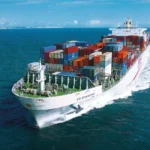


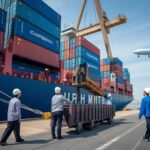

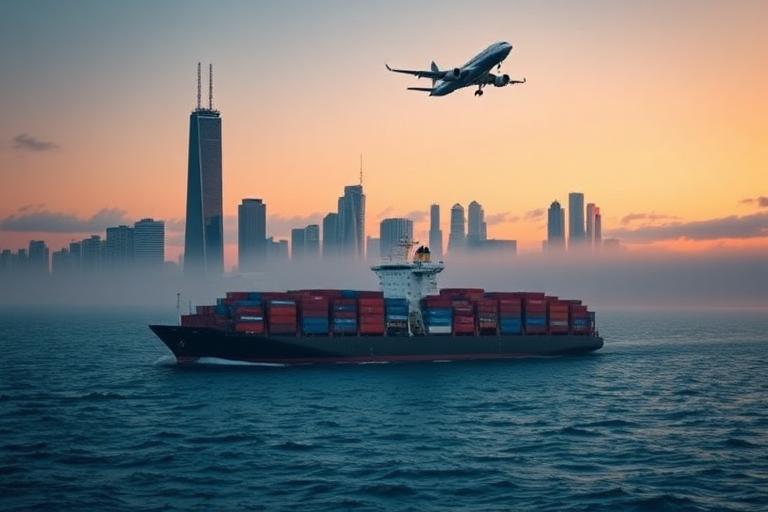
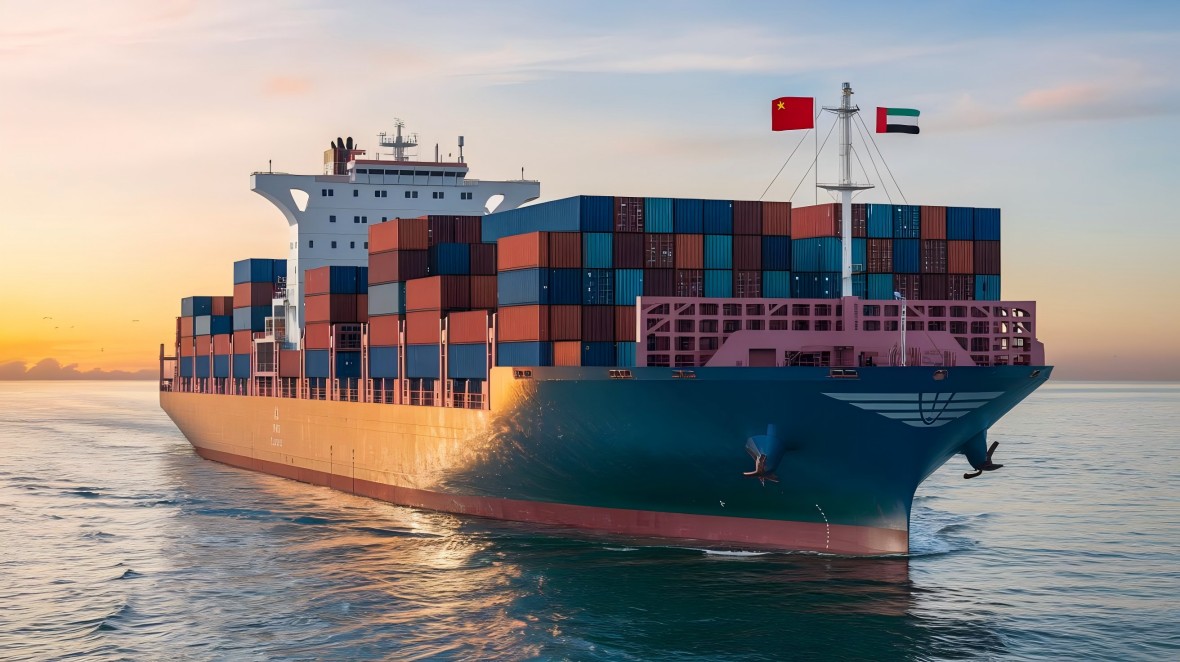
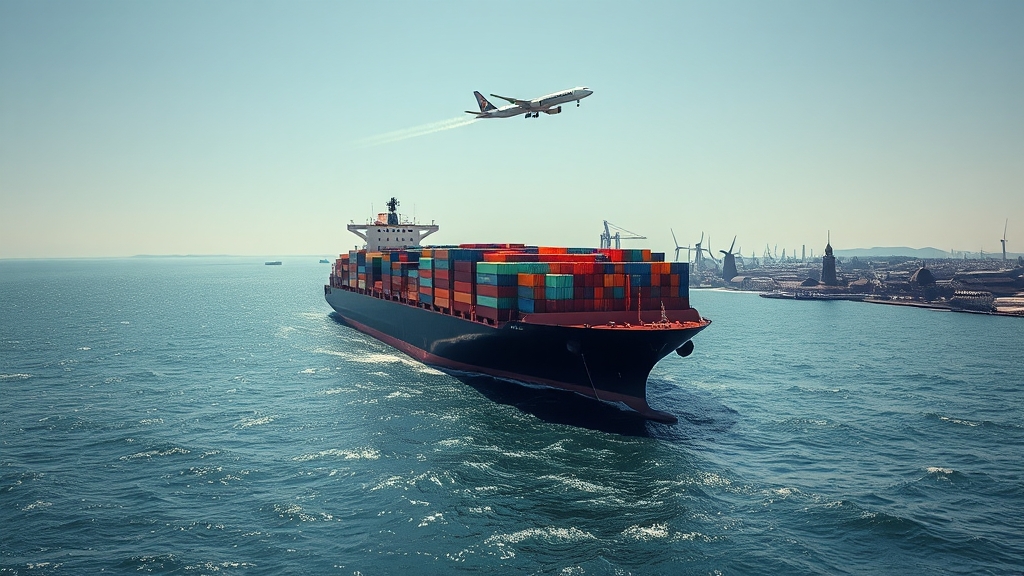
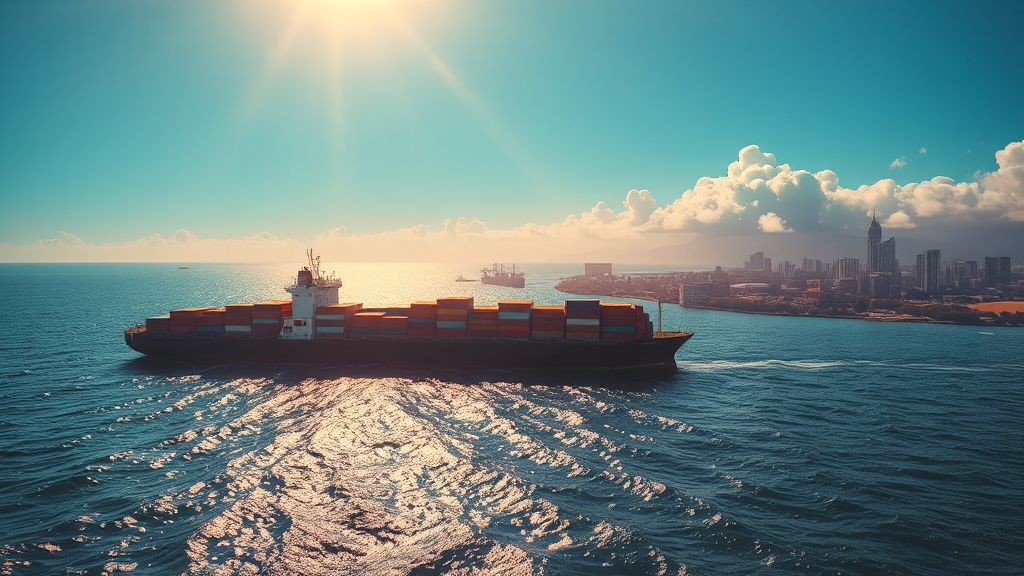
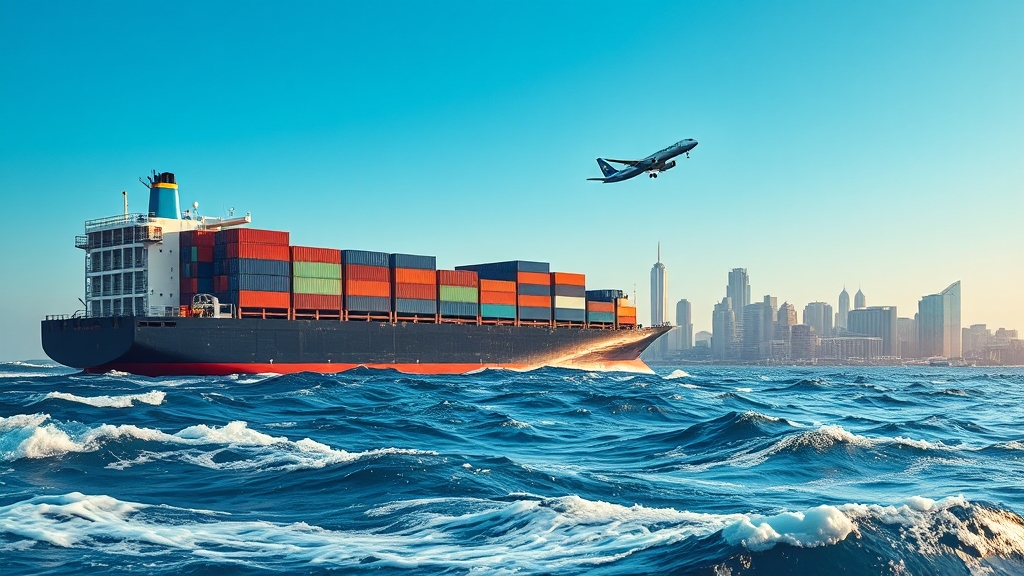





 Afrikaans
Afrikaans Shqip
Shqip አማርኛ
አማርኛ العربية
العربية Հայերեն
Հայերեն Azərbaycan dili
Azərbaycan dili Euskara
Euskara Беларуская мова
Беларуская мова বাংলা
বাংলা Bosanski
Bosanski Български
Български Català
Català Cebuano
Cebuano Chichewa
Chichewa 简体中文
简体中文 繁體中文
繁體中文 Corsu
Corsu Hrvatski
Hrvatski Čeština
Čeština Dansk
Dansk Nederlands
Nederlands English
English Esperanto
Esperanto Eesti
Eesti Filipino
Filipino Suomi
Suomi Français
Français Galego
Galego ქართული
ქართული Deutsch
Deutsch Ελληνικά
Ελληνικά Kreyol ayisyen
Kreyol ayisyen Harshen Hausa
Harshen Hausa Ōlelo Hawaiʻi
Ōlelo Hawaiʻi עִבְרִית
עִבְרִית हिन्दी
हिन्दी Hmong
Hmong Magyar
Magyar Íslenska
Íslenska Igbo
Igbo Bahasa Indonesia
Bahasa Indonesia Gaeilge
Gaeilge Italiano
Italiano 日本語
日本語 Basa Jawa
Basa Jawa ಕನ್ನಡ
ಕನ್ನಡ Қазақ тілі
Қазақ тілі ភាសាខ្មែរ
ភាសាខ្មែរ 한국어
한국어 كوردی
كوردی Кыргызча
Кыргызча ພາສາລາວ
ພາສາລາວ Latin
Latin Latviešu valoda
Latviešu valoda Lietuvių kalba
Lietuvių kalba Lëtzebuergesch
Lëtzebuergesch Македонски јазик
Македонски јазик Malagasy
Malagasy Bahasa Melayu
Bahasa Melayu മലയാളം
മലയാളം Maltese
Maltese Te Reo Māori
Te Reo Māori मराठी
मराठी Монгол
Монгол ဗမာစာ
ဗမာစာ नेपाली
नेपाली Norsk bokmål
Norsk bokmål پښتو
پښتو فارسی
فارسی Polski
Polski Português
Português ਪੰਜਾਬੀ
ਪੰਜਾਬੀ Română
Română Русский
Русский Samoan
Samoan Gàidhlig
Gàidhlig Српски језик
Српски језик Sesotho
Sesotho Shona
Shona سنڌي
سنڌي සිංහල
සිංහල Slovenčina
Slovenčina Slovenščina
Slovenščina Afsoomaali
Afsoomaali Español
Español Basa Sunda
Basa Sunda Kiswahili
Kiswahili Svenska
Svenska Тоҷикӣ
Тоҷикӣ தமிழ்
தமிழ் తెలుగు
తెలుగు ไทย
ไทย Türkçe
Türkçe Українська
Українська اردو
اردو O‘zbekcha
O‘zbekcha Tiếng Việt
Tiếng Việt Cymraeg
Cymraeg יידיש
יידיש Yorùbá
Yorùbá Zulu
Zulu